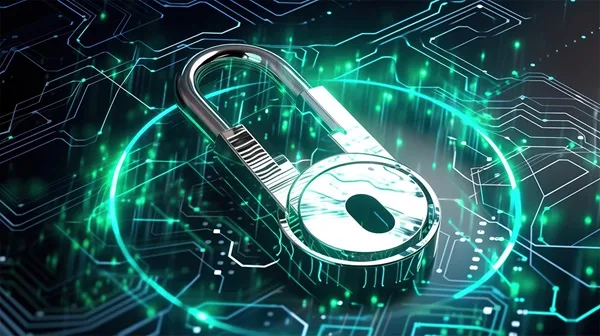Many people consider cyber security an expense but a critical investment. Businesses rely on data and intellectual property to operate, so they must protect that information from breaches and cyberattacks. Robust cybersecurity also helps businesses improve their reputation among customers. Breaches can erode customer trust and cause customers to switch to competitors.
1. Having a strong password
What is cybersecurity and why is it important? Cybersecurity is the technology that protects computers, networks, and electronic systems from attacks. It’s a fast-growing industry and can be used by businesses of all sizes to protect their customers, employees, and assets from cyberattacks. While data breaches, hacks, and malware are commonplace, cybersecurity can help reduce the impact of these attacks on individuals and businesses.
Having a strong password is one of the most important security steps you can take to safeguard your digital life. With so many of our daily activities now occurring online, you must keep your accounts and data protected.
A strong password should be complex for cybercriminals to guess and crack using brute force attacks. It should be at least 12 characters long and contain a mixture of upper and lower case letters, a variety of symbols, and numbers. It should not include personal information, such as your name, date of birth, or home address, and it should be unique for each account.
Using a password manager application to create and store strong passwords for each account is also a good idea, so you don’t have to remember multiple complex passwords. Another essential step to safeguarding your digital life is securing your home network. This includes your router for internet access, smart devices in your home (such as a smart TV or refrigerator), and laptops. Cybercriminals can quickly gain access to these devices if they have the right tools. In addition, it is a good idea to use two-factor authentication for your home network.
2. Keeping your devices updated
Whether it’s your laptop, smartphone, tablet, or smart home device, all these devices must be updated regularly. This is one of the simplest cybersecurity best practices that everyone should follow. It is also one of the most effective ways to prevent cyberattacks and protect your devices from hacking. Cybercriminals and malicious programs always seek ways to access your devices, steal information, or control them. Keeping your software and applications updated allows you to plug the gaps that they may try to exploit.
These gaps are often called vulnerabilities. Just like a thief tries to break into your house through an unlocked window, hackers try to exploit the weaknesses in your device’s operating systems and apps. The easiest way to update your devices is through automatic updates. You should enable this option for the operating system on your PC or laptop, browsers, and app stores. It’s essential to make it a habit to check for updates and install them as soon as they become available.
It might disrupt your daily routine or cause a few seconds of downtime, but it’s much better than losing your personal or business data to cyber-attacks. It’s also essential to use trusted sources when downloading any software or app updates. You should always download them from the software or app developer’s site. Pirated or hacked software versions are usually filled with malware and can ruin your device.
3. Keeping your data safe
Keeping data safe and secure is an essential part of cybersecurity. Data theft and hacking have become commonplace, and investing in cyber security is more important than ever. Whether you’re an individual or a business, having strong cyber security measures can prevent costly and embarrassing data breaches. A recent study found that companies prioritizing cyber security have higher customer trust and more revenue than those without.
There are many ways to protect yourself from hackers, such as keeping your software up to date. Software updates often include security patches. Two-factor authentication provides an extra layer of protection, such as requiring a code sent to your phone or email and a password. A firewall can help keep hackers out of always updating your devices to the latest systems. Be wary of suspicious emails and pamphlets that claim to be from legitimate banks.
By backing up your data, you can keep it even if you lose or damage your device. In some contexts, cybersecurity is considered a morally relevant value because it helps uphold other values of moral importance, such as health and security. However, it’s also important to note that it is possible that cybersecurity could be considered a mere means in some contexts.
4. Keeping your identity safe
In addition to securing your techyjin etsy digital files, you should safeguard your identity. Doing so can prevent fraud, protect your privacy, and help you avoid costly mistakes. For example, if you have an unprotected credit card, it’s easy for hackers to steal your information. If a cybercriminal gains access to your financial data, they can use it for online shopping or to withdraw funds from your account.
It’s essential to safeguard your identity by securing your credit cards, using a password-protected laptop or tablet, and regularly updating your software. Another way to keep your identity safe is to shred receipts, bank statements, and unused credit card offers before throwing them away.
Final Words
Doing so can prevent identity theft, which is linked to higher debt, lower credit scores, and poor job prospects. It’s also a good idea to back up your digital files and ensure your family knows where to find them in an emergency.

